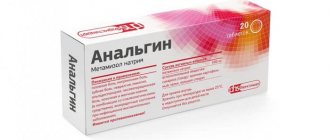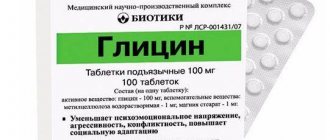We all understand perfectly well that the best way to treat a disease is to try to prevent it. Therefore, at the first symptoms, we wrap ourselves in blankets, drink hot tea with lemon, eat honey and do our best to support our body in the fight against viruses. But it happens that the immune system does not always cope and then a person has to take various drugs. Various diseases are especially difficult for nursing mothers, who, remembering breastfeeding and its effect on the child’s body, try to exclude all pharmaceutical drugs, but are they doing the right thing? What antiviral drugs can be taken while breastfeeding?
What antiviral drugs are there for breastfeeding women?
If we consider all the drugs that domestic or foreign pharmacology offers us for those who are breastfeeding their baby, we can see that there are not many of them. If you take the first antiviral drug you come across, you will see in the instructions for its use that it should not be used by pregnant women and nursing mothers. But this basically just means that this remedy was not properly tested on a sufficient number of willing test subjects. Such a procedure is quite expensive, so many manufacturers prefer to save money on it and simply state in the instructions that the drug is not recommended for pregnant women or while breastfeeding, as they say “just in case.”
In fact, many medications have already been used by doctors repeatedly to treat pregnant and lactating women. Moreover, there are many drugs that have been tested by independent studies and approved for use by women whose babies are breastfed.
If a young mother is tormented by doubts about whether she should take this or that drug during lactation, then she can always turn to doctors who specialize in these issues, because they have their own reference books, which clearly indicate drugs that are harmless to babies, which do not affect the composition in any way and the quality of breast milk.
Many antiviral drugs are approved only for short-term use. If the mother needs a full course of medication, then she needs to weigh the benefit that she can get from it and compare it with the harm that will be caused to the child and make the right decision. If the mother herself cannot decide on this and is completely at a loss, then she should seek help from a lactation specialist who will find the best way out of even the most seemingly difficult situation.
Nursing mother needs treatment
First of all, treatment should not negatively affect the child’s health. Children are very sensitive to any change in diet. When choosing medications for the treatment of acute respiratory infections, nursing mothers should take into account that alcohol leads to a decrease in lactation. Alcohol-based drugs can be taken only in certain cases and under the supervision of a doctor. In this case, alcohol solutions must be abandoned.
The Breastfeeding Academy is more cautious and advises against breastfeeding with damaged petioles until they have healed. In most cases, it should be treated similarly to a herpes simplex infection, and women should not breastfeed or use expressed breast milk from the affected breast until the lesions have healed.
Infants may be given zoster immunoglobulin if needed. The breastfeeding network indicates whether the lesions can be covered, the risk of contracting the infection is low. If the rash is only on your body and can be covered by clothing, there is a small risk of spreading it to others before the lesions have dried.
If a woman uses remedies to relieve symptoms, such as gargling or gargling with Hexoral, Iodinol or Chlorhexidine, this will not harm the baby at all. To combat cough, expectorants such as Ambroxol (Lazolvan) are good. Drugs such as Gedelix, Bronchicum or Doctor MOM have proven their effectiveness. For nursing mothers, the use of medications containing bromhexine is contraindicated.
Antiviral drugs during breastfeeding: reviews
If a mother has herpes simplex virus, she can continue to breastfeed until any herpes lesions are covered so that her baby does not have contact with the sores.
Exposure to herpes can be very dangerous for a baby under three weeks of age, and a mother should contact her doctor for advice if she suspects she may have herpes in the first weeks after birth. Breastfeeding can continue if the mother has chickenpox the first time she breastfeeds, but again this can be dangerous for the newborn baby in the first week of life and a doctor should be consulted so that appropriate precautions can be taken. It is absolutely necessary to combat nasal congestion and runny nose. To produce milk, the mother's body needs a large amount of oxygen. A runny nose simply harms lactation. Naphazolin (Naphthyzin), Tetrizolin (Tizin), Oxymetazoline (Nazivin) will help overcome nasal congestion and runny nose. However, these drugs can be used for no more than 3-5 days.
Shingles is compatible with breastfeeding, the recommendation is to cover all lesions so that the baby does not have direct contact with any active sores. As long as you are pain free, continue breastfeeding. Your milk provides disease-fighting antibodies that help build your baby's immune system. But if you start to develop flu-like symptoms, take extra precautions to protect your baby. The safest option is to pump your own milk and have someone else feed your baby.
At elevated temperatures, the milk in the mother's breast does not spoil. Scientists have already proven that such a process is physiologically impossible. However, this does not mean that the high temperature does not need to be reduced. It is necessary to fight high fever, especially if the mother does not tolerate it well. Paracetamol is good for this. It is considered a safe remedy for reducing fever. You can take any antipyretic drug once, but if one dose is not enough, you should consult a doctor. You should know that you should absolutely not take Aspirin during lactation: it can disrupt the metabolism in the baby’s body.
Other means of recovery
While you are sick with the flu, you want to limit contact with your child.
In addition to having someone else have a bottle, your baby pumping breast milk or formula, if possible, try to limit your baby's exposure to your germs in other ways. They can relieve your symptoms and shorten the length of your illness, which means your baby is less likely to get infected. Wash your hands with soap and warm water before touching or holding your child. . Yes, it is okay if you take antiviral drugs prescribed by your doctor, such as oseltamivir or zanamivir, while breastfeeding. If you have been exposed to the flu and are taking prescribed antiviral medications as a preventive measure, you can safely continue breastfeeding as you do not have any symptoms.
Separately, it is worth mentioning the use of homeopathic medicines. In homeopathic remedies, the active substance is contained in very low concentrations. Although such drugs are safe for a nursing mother and baby, in some cases they can cause an allergic reaction. Among homeopathic medicines that are safe for mothers and babies are Aflubin and Anaferon. However, medicine does not recognize the effectiveness of such drugs due to the lack of convincing evidence.
In addition, nursing mothers should adhere to general recommendations for combating acute respiratory infections. You need to drink more fluid. Broths, soups and hot tea will help alleviate the condition, since plenty of warm drinking removes harmful substances from the body and increases the level of lactation.
Approved antiviral medications during breastfeeding
Most often in the clinic, nursing mothers are prescribed the following drugs: Arbidol, Aflubin, Remantadine and Ribovirin. But it is not recommended to delay their use for too long, since they are considered effective only in the first stage of the disease. Remember that you should not get carried away with these drugs, as they can cause allergic reactions, increased excitability, and digestive disorders in both mother and baby.
A couple of years ago, a drug appeared in pharmacies that passed all the necessary tests and is suitable for nursing mothers - Tamiflu. It fights well against influenza viruses type A and B. Grippferon is considered another approved drug for mothers with the flu whose children are breastfed.
But if a nursing mother develops herpes, then in this situation you can only help with local drugs, since almost all known drugs are strictly prohibited.
Reviews
I use this ointment as a preventative against influenza and ARVI. We use it especially often during the epidemic season. I have been lubricating my child’s nose since he was one year old. I used it myself when I was pregnant and while breastfeeding, because in this position many products are contraindicated. There were no side effects. Another advantage of this ointment is its low cost. Her consumption is small. I believe that Oksolin protects against viruses. But this ointment does not help us against a runny nose, so we use it only for prevention. I consider it no worse, and even better, than any “Feronov” (Grippferon, Interferon, etc.).
marleves
https://otzovik.com/review_4511628.html/
The antiviral drug Bittner Richard Aflubin is my savior during pregnancy, breastfeeding and for a 2.5 month old baby!
Advantages: it really helps, can be used for pregnant women, nursing mothers and children from birth.
Disadvantages: didn't notice.
When the baby was 2.5 months old, our dad brought home some kind of virus. Everyone got sick: my husband, me and my daughter. My husband is a fan of folk remedies and doesn’t accept pills. I couldn’t be treated with strong drugs, because I was breastfeeding, and treating a child under three months with a cold on their own is stupid and dangerous. The family doctor recommended Aflubin to us, especially since I took it while pregnant, and the baby, according to the doctor, should not have any allergic reactions to it. Aflubin helped us all! One miracle drug got us all back on our feet! No complications! Everything went without a trace! I was convinced from my own experience that the drug works and it is not a “placebo” at all, as many write in their reviews.
Jayfa89
https://otzovik.com/review_4771147.html
Viferon rectal suppositories cured ARVI in 3 days.
Advantages: increases immunity.
Disadvantages: rectal use.
I am a nursing mother, and I have a strict selection process with medications. It is no secret that almost everything that the mother ate, including medications, is passed on to the baby through breast milk. It just so happened that I got sick in the winter. I had a fever, chills, runny nose, weakness, and headache. The condition, frankly speaking, is not great. I didn’t use anything for two days, because I didn’t know what I could do. At home I had an arsenal of cold remedies, but they all didn’t work for me. Contraindications stated: breastfeeding. My health was not improving, I had to do something. And then I remembered Viferon candles. They were once prescribed to my eldest son; he was coughing a lot at the time, and together they helped him, only there was a children’s dosage - 250,000. I sent my husband to the pharmacy. I immediately started using them morning and evening. The next day the temperature began to drop to tolerable levels. And three days later, thanks to Viferon suppositories, I recovered, even my runny nose disappeared. So Viferon is a super-suppository for those who are breastfeeding. After all, there is nothing chemical in the composition. Viferon helps due to human interferon, which, in turn, models immunity, that is, it helps the body build protection against viruses and fight them. Some people may find it unpleasant to use candles. Not at all. These candles are soft, the packaging is easy to open. Well, anything can be done for treatment, even candles.
Lucky decoy
https://otzovik.com/review_2441887.html
You need to be treated for a cold while breastfeeding wisely, analyzing your condition and the possible consequences for yourself and your baby. In any case, before taking medications, it is better for a nursing mother to consult with her doctor or pediatrician.
mamaprofi.com
Antipyretic drugs during breastfeeding
During lactation, it is highly not recommended to use any antipyretics, but if the situation becomes critical and the nursing mother has a temperature of more than 38 degrees for more than three days, then it is still worth bringing it down. You can’t torment yourself for a long time, because with an elevated body temperature, those who are breastfeeding their baby may burn out their milk and lose it altogether.
First, try to bring down the temperature using old-fashioned methods:
- wipe the skin with a cotton swab, previously soaked in a solution of water and vinegar, paying special attention to the forehead, temples, axillary and popliteal areas;
- Drink plenty of lukewarm liquids.
If the temperature still rises, then, as a last resort, you can take a tablet of Paracetamol, Panadol or Nurofen.
Drug treatment
During the feeding period, a woman should be especially careful about the medications she takes. Without consulting a doctor, she can only take paracetamol-based products. Such drugs combine effectiveness and safety, reducing elevated body temperature to normal levels within an hour after administration and relieving headaches.
When using medications with paracetamol, you must be especially careful: a nursing mother can take only 3 tablets per day with an interval of 6 hours.
As for antiviral drugs, a woman during lactation can only treat colds with safe drugs, so only a doctor should prescribe such medications.
When deciding whether to take an antiviral drug or not, you should evaluate the following factors:
- almost all substances taken by the mother will pass through the milk to the baby;
- a child may react to a new composition with an allergic reaction;
- some of the products have the ability to change the taste of milk;
- increasing the dose or changing the drug is possible only after consultation with a specialist;
- Self-medication during breastfeeding is not allowed.
Drink plenty
Medicines are not bad and effective, but no one has yet canceled drinking plenty of fluids. Why is this so useful? There are more than enough reasons to drink plenty of fluids:
- it increases the body's resistance to infections;
- water removes toxins;
- you eliminate dehydration.
But still, nursing should be careful during this difficult period, because such generally useful products for preparing cold drinks as raspberries, honey and lemon can cause a severe allergic reaction in a baby. Therefore, it is better to opt for dried fruit compote, which improves lactation, linden tea, rose hip tea, or cranberry juice. If your child develops an allergic rash to these drinks, then you will have to be content with boiled water and warm milk.
Runny nose during lactation
When a nursing woman begins to have a runny nose, this should not be ignored either. You can give yourself medications that do not dilate blood vessels. These include:
- Pinosol;
- Salin;
- Quicks;
- Aquamaris;
- Nosol.

During breastfeeding, forget about Farmazolin, Nazol and Nazivin!
Folk remedies for colds during breastfeeding
A competent doctor will not prescribe a mountain of expensive medications to a patient. Most antiviral drugs are dummies with unproven effects. It is better to help the body cope with the disease using “folk” remedies. It is safe, effective and inexpensive.
Tea with lemon and honey
Brew black tea. Add lemon and honey to it, no sugar needed. Drink warm, not hot
Warm liquid dilates blood vessels and activates sweating. Lemon is an antiseptic and rich in vitamin C. Honey has a bactericidal effect and normalizes metabolism.
Raspberries
Dissolve two tablespoons of raspberry jam or 100 g of fresh raspberries in boiling water. Let it brew for 20 minutes.
Raspberries, thanks to salicylic acid, reduce fever. Inhibits the inflammatory process. Raspberries contain a lot of vitamin C.
Treating the throat
For sore throats or viral diseases, when the mucous membrane of the throat becomes inflamed, you cannot think of a more natural and effective way to relieve pain than gargling. Here, every patient has the right to choose what suits her taste best. You can gargle with infusions:
- eucalyptus;
- chamomile;
- oak bark;
- sage;
- calendula;
- any other antimicrobial herbs.

You can treat a sore throat with Lugol's solution, Chlorhexidine or Iodinol. But you should not use various sucking tablets, as they end up in the stomach, and from there into breast milk.
Viral diseases
The virus is a non-cellular infectious agent. It can only reproduce inside living cells. Viruses infect all types of organisms, from animals and plants to bacteria (viruses that infect bacteria are called bacteriophages).
Viral diseases are infectious diseases caused by the activity of viruses. The most common type of viral diseases is the so-called. cold. Colds in non-medical sources are called a list of several diseases:
- Flu
- Acute respiratory viral infection (ARVI)
- Pharyngitis, Nasopharyngitis
- Laryngitis
- Herpes
The occurrence of a cold is not directly related to hypothermia. Hypothermia does not cause infection, but increases susceptibility to infection and makes infection easier.











